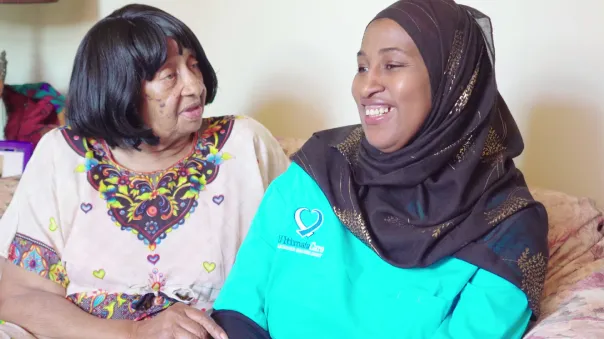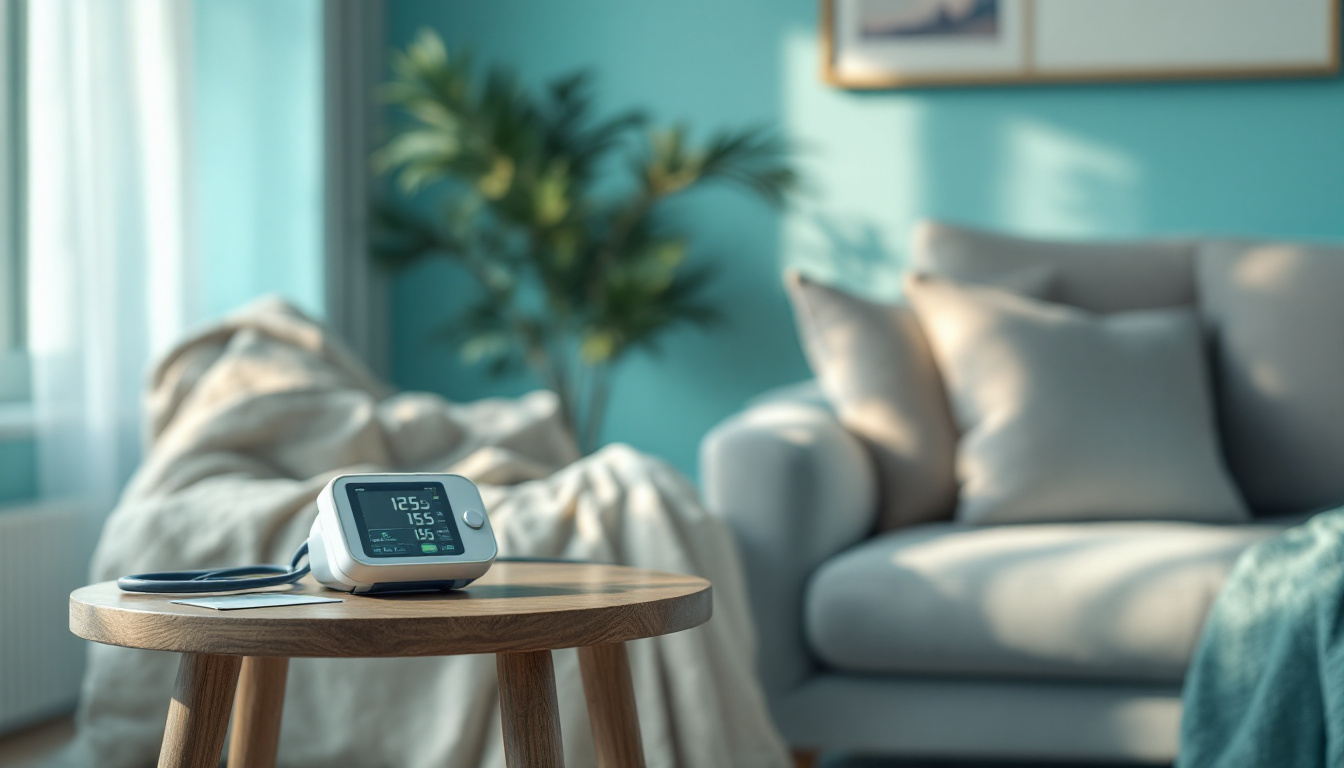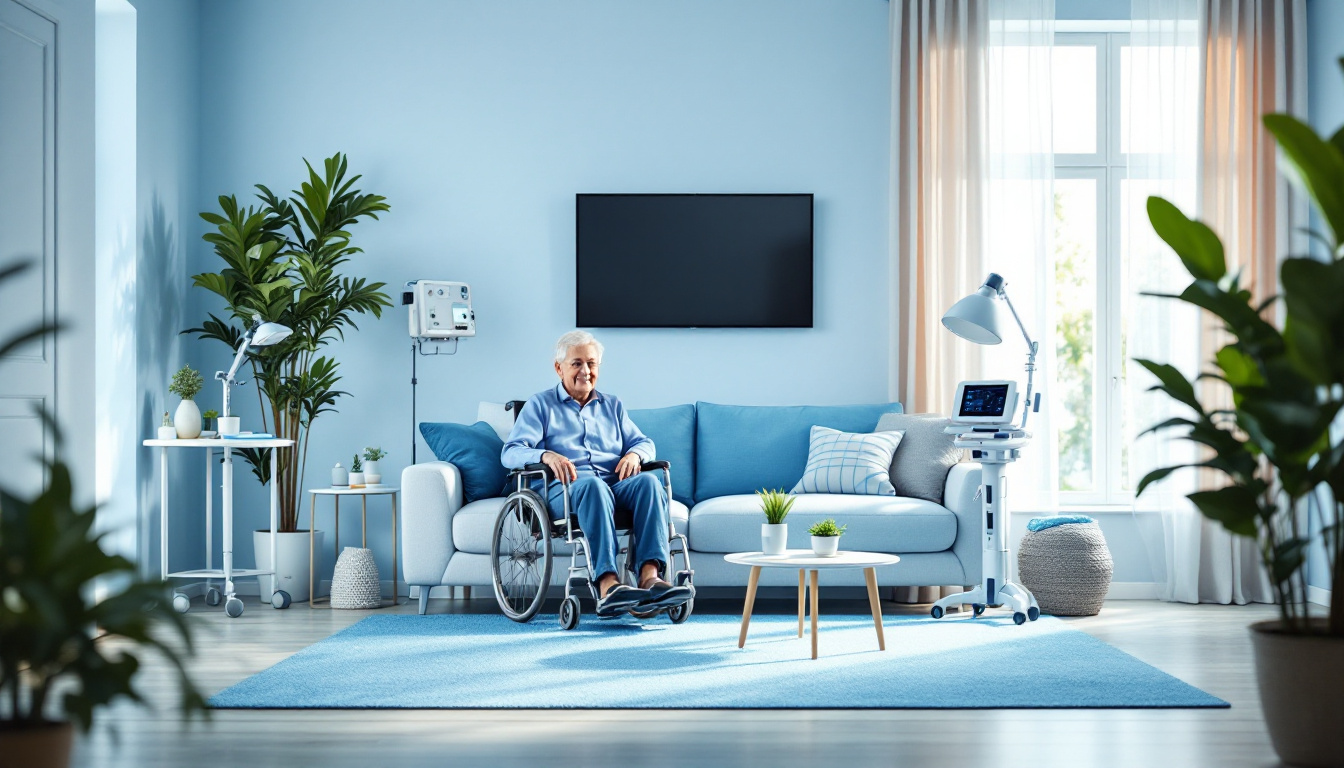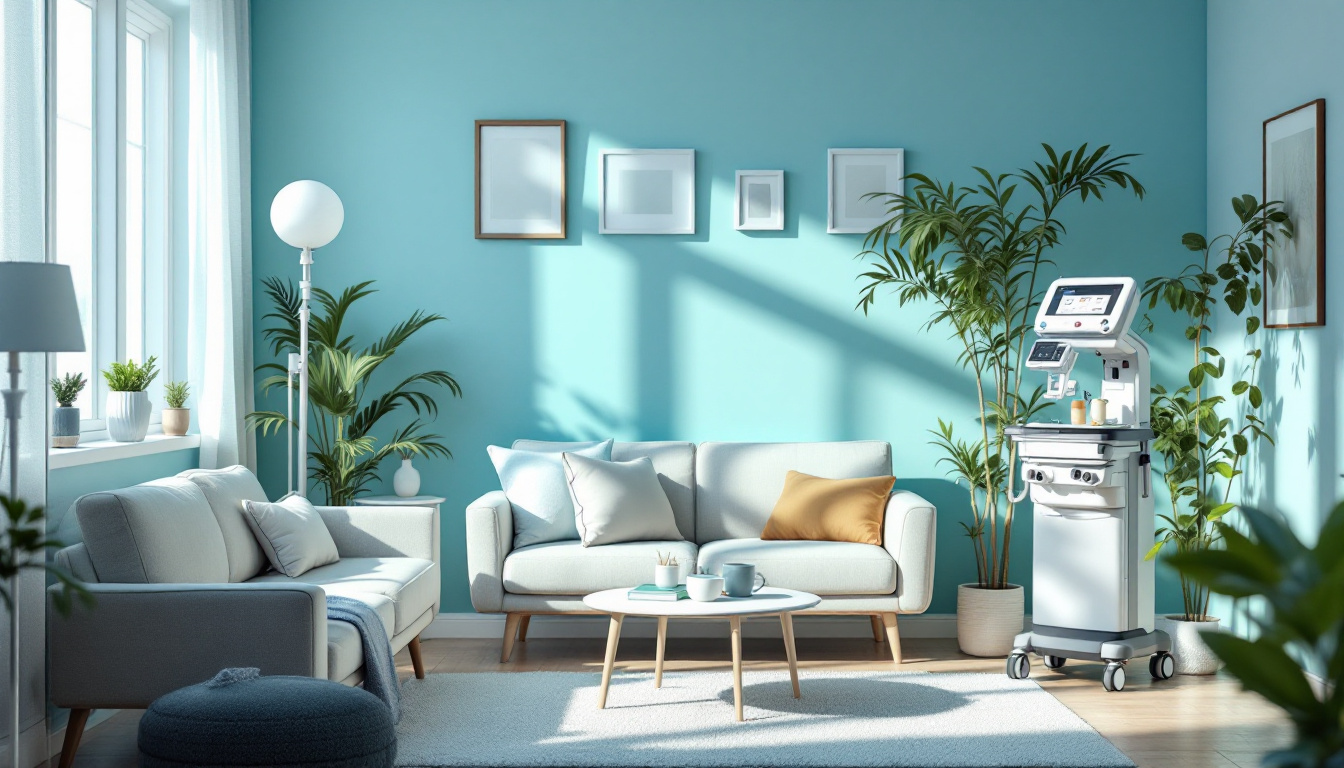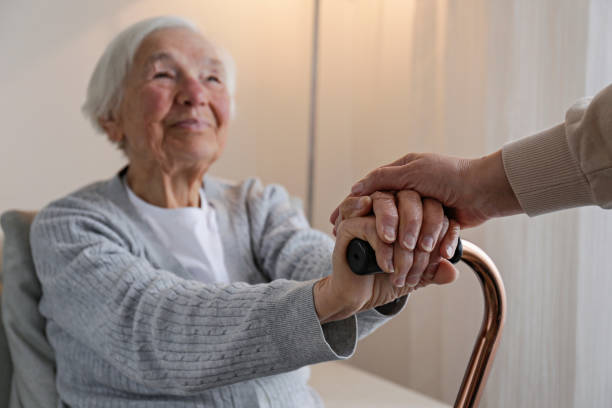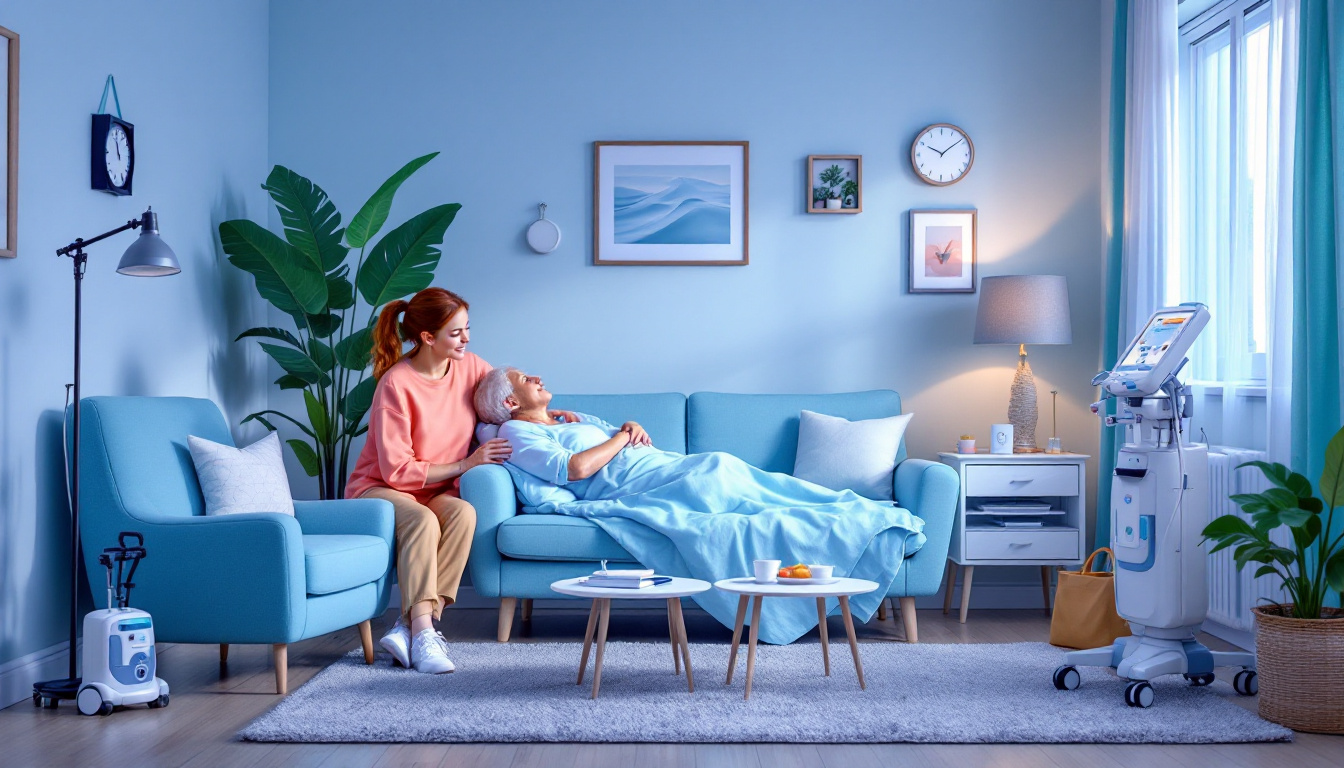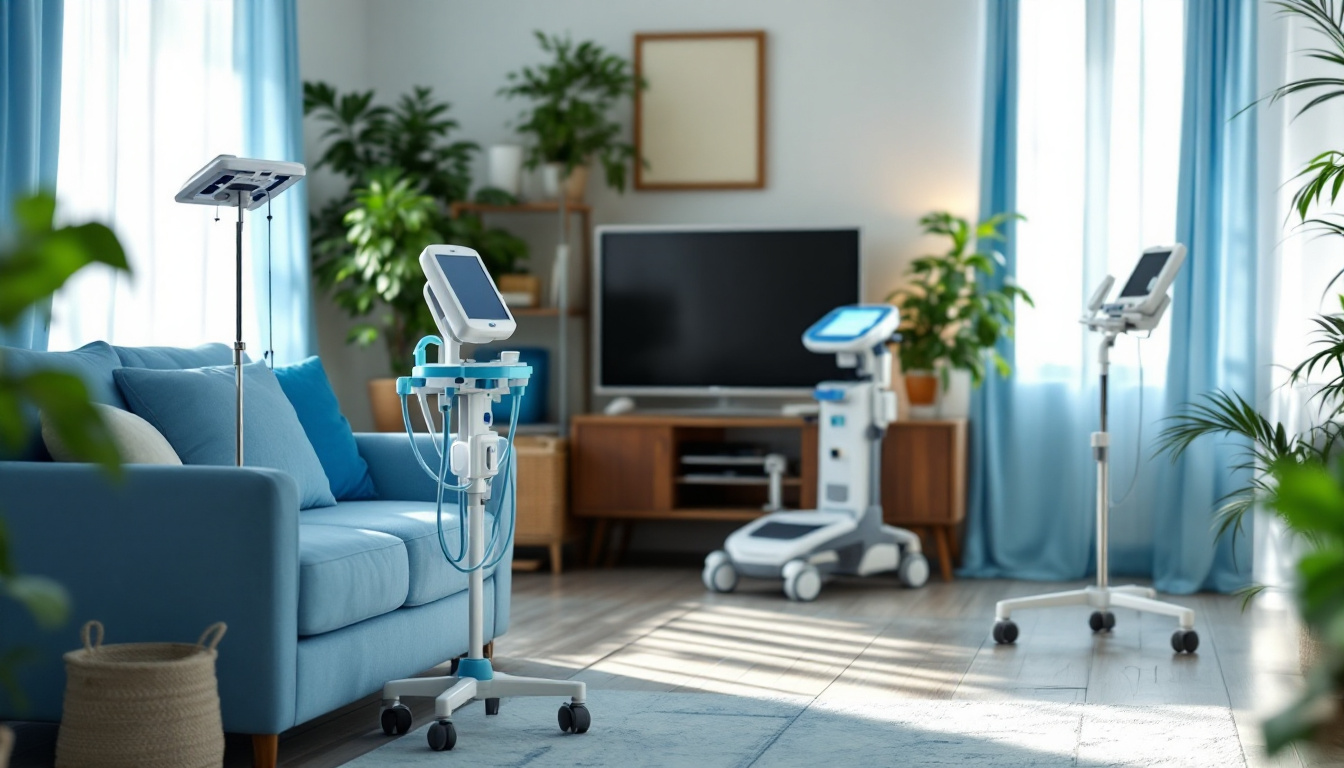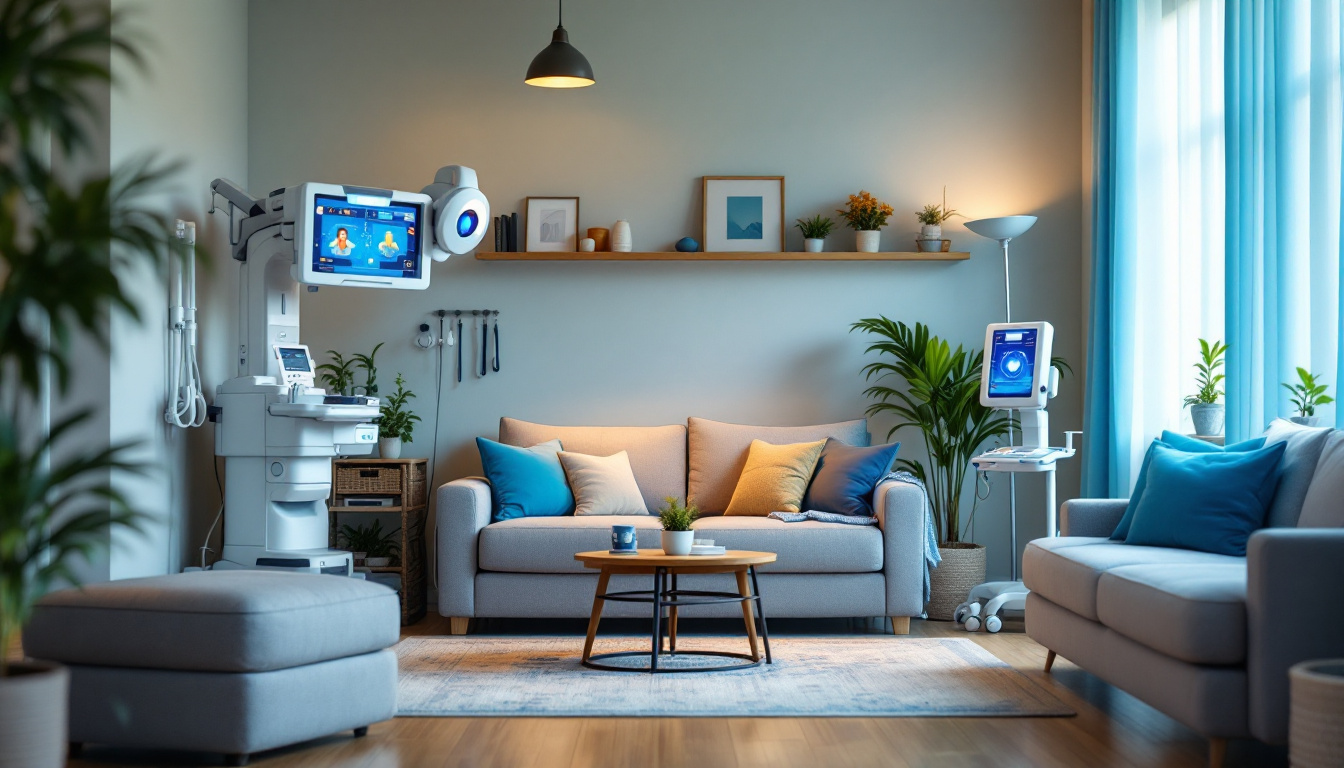Pneumonia in the Elderly: A Guide for CDPAP Caregivers
A comprehensive guide for CDPAP caregivers on pneumonia in the elderly. Understand risks, diagnosis, and caregiving support.
The information provided in this article is for educational purposes only. If you have medical questions or concerns, please contact a qualified health care professional.
Before beginning any new exercise program, it's essential to seek advice from your healthcare provider to ensure it's safe and appropriate for your individual health condition and fitness level.
Understanding Pneumonia in the Elderly
Pneumonia, a common respiratory infection, poses specific risks and challenges for older adults. Understanding the unique aspects of pneumonia in the elderly is crucial for CDPAP caregivers to provide effective care. This section will explore the risks associated with pneumonia in older adults and highlight the subtle symptoms that may manifest in this population.
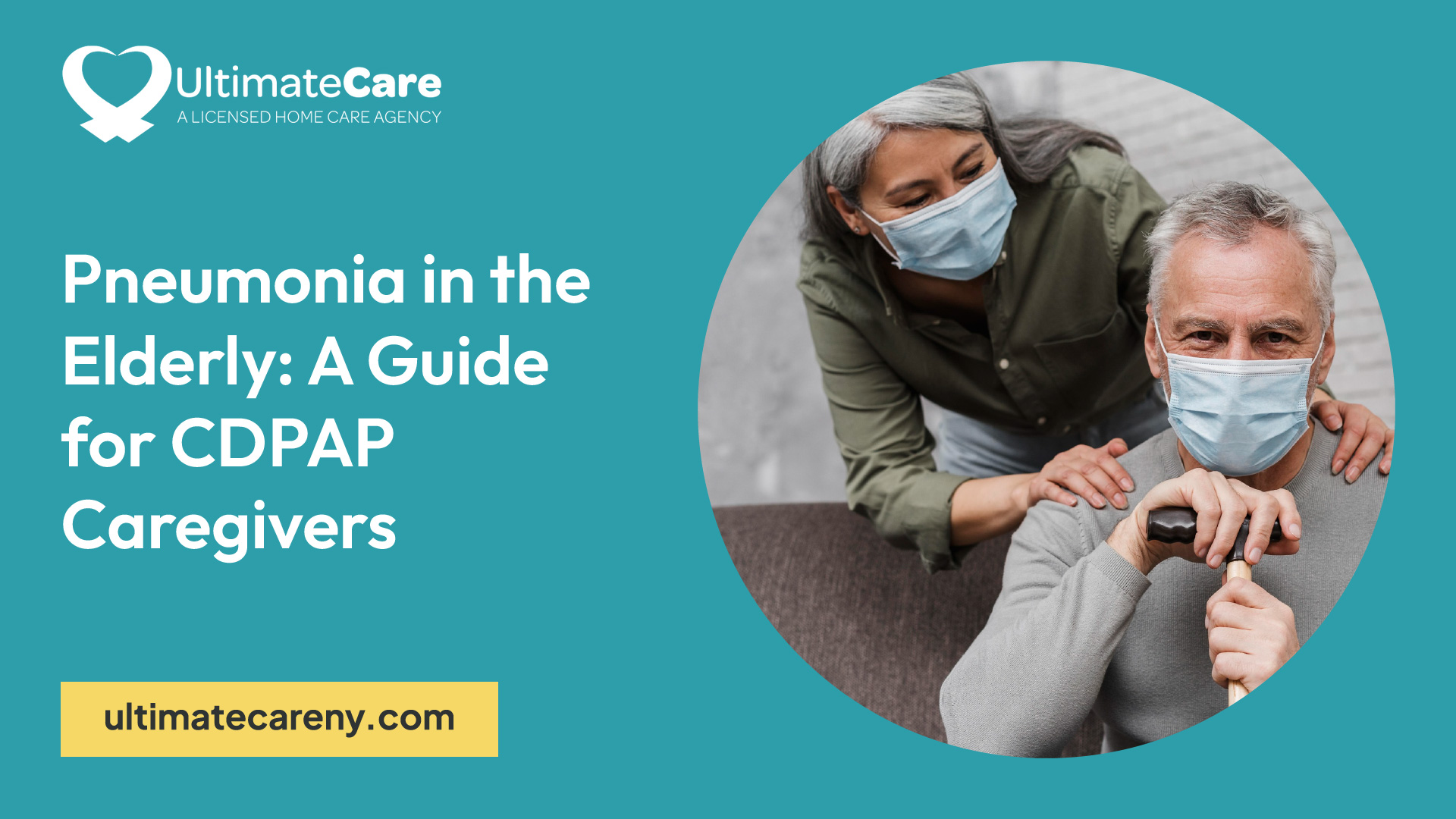
Risks of Pneumonia in Older Adults
Adults aged 65 years and older are at an increased risk for pneumonia, along with children younger than 5 years old. In the United States alone, nearly 1 million older adults are hospitalized with pneumonia each year, highlighting the seriousness of this condition in the elderly population. Several factors contribute to this increased susceptibility:
- Prevalence of chronic diseases: Older adults commonly have underlying health conditions such as lung disease or heart disease, which make them more vulnerable to pneumonia [3].
- Weakening immune system: The immune system's effectiveness diminishes with age, reducing the body's ability to fight off infections like pneumonia.
- Decline in physical strength: Age-related changes can impact the strength and function of the respiratory muscles, making it harder for older adults to clear their lungs and prevent infections.
- Impaired cough reflex: Older adults may have a weakened cough reflex, which hampers the ability to expel infectious agents from the respiratory system.
Subtle Symptoms in the Elderly
Pneumonia in older adults often presents with more subtle symptoms, which can differ from the classic symptoms seen in younger individuals. This can lead to delays in diagnosis and treatment, potentially worsening the condition [2]. Some common symptoms experienced by older adults with pneumonia include:
- Fever: While fever is a typical symptom of pneumonia, it may be absent or less pronounced in older individuals.
- Cough: Older adults may not exhibit a productive cough with phlegm, which is commonly associated with pneumonia.
- Confusion: Pneumonia can cause worsening confusion or changes in mental status in older adults, which may be mistaken for other conditions.
- Fatigue: Feeling excessively tired or weak may be a prominent symptom in elderly individuals with pneumonia.
- Gastrointestinal symptoms: Older adults may experience symptoms like diarrhea or appetite loss, which can be mistaken for gastrointestinal issues.
It is important for CDPAP caregivers to be aware of these subtle symptoms and closely monitor elderly patients for any concerning changes in their health. Prompt recognition and timely medical attention are crucial to prevent complications and ensure the best possible outcomes.
Understanding the unique risks and symptoms associated with pneumonia in older adults will help CDPAP caregivers provide appropriate care and support to their elderly patients. By remaining vigilant and proactive in recognizing potential signs of pneumonia, caregivers can play a vital role in ensuring the well-being and recovery of their elderly loved ones.
Causes and Complications
Pneumonia, a respiratory infection that can affect individuals of all ages, poses a particular threat to older adults. Understanding the causes and potential complications associated with pneumonia in the elderly is crucial for caregivers providing care under the CDPAP program.
Bacterial Culprits of Pneumonia
Pneumonia in individuals aged 65 years and older can be caused by various germs, with bacteria being one of the most common culprits. The types of bacteria that cause pneumonia in older adults can vary. A review from 2014 identified specific types of germs more frequently isolated from adults aged 65 years and older with community-acquired pneumonia (CAP).
It's important to note that pneumonia can also be caused by viruses and fungi. However, bacterial pneumonia is more prevalent in older adults and requires timely medical intervention.
Complications in Elderly Patients
Older adults with pneumonia are at a higher risk of hospitalization and mortality compared to other age groups. Symptoms can quickly worsen, emphasizing the importance of seeking prompt medical attention. Chronic diseases such as lung disease or heart disease, which are more prevalent in older age groups, can increase susceptibility to pneumonia.
Complications associated with pneumonia in the elderly can include:
- Respiratory Failure: Pneumonia can lead to respiratory failure, where the lungs are unable to provide adequate oxygen to the body. This can be life-threatening and may require mechanical ventilation.
- Sepsis: Pneumonia can cause sepsis, a severe infection that can affect multiple organs. Sepsis can be life-threatening and requires immediate medical attention.
- Pleural Effusion: Pneumonia can lead to the accumulation of fluid in the space between the lung and the chest wall (pleural space). This can cause difficulty in breathing and may require drainage.
- Lung Abscess: In some cases, pneumonia can result in the formation of a cavity filled with pus within the lung tissue. Lung abscesses may require drainage or surgical intervention.
Caregivers should be vigilant in monitoring the symptoms of pneumonia in the elderly and ensure that medical care is sought promptly. By understanding the causes and potential complications associated with pneumonia, caregivers can play a crucial role in supporting and assisting elderly individuals in their recovery journey.
Diagnosis and Treatment
When it comes to pneumonia in the elderly, timely diagnosis and appropriate treatment are crucial for ensuring the best possible outcomes. In this section, we will explore the diagnostic procedures commonly used for pneumonia and the tailored treatment approaches for elderly patients.
Diagnostic Procedures for Pneumonia
Diagnosing pneumonia typically involves a combination of medical history assessment, physical examination, and diagnostic tests. For elderly individuals suspected of having pneumonia, healthcare providers may utilize the following diagnostic procedures:
- Medical History Assessment: Gathering information about the patient's symptoms, medical history, and any recent exposure to respiratory infections.
- Physical Examination: Evaluating vital signs, listening to lung sounds, and assessing overall respiratory function.
- Blood Tests: Checking for elevated white blood cell count, which can indicate an infection, as well as assessing levels of oxygen and carbon dioxide in the blood.
- Sputum Tests: Analyzing a sample of mucus coughed up from the lungs to identify the causative organism.
- Chest X-rays: Imaging the chest to identify areas of lung inflammation or fluid accumulation.
- CT Scans: Providing detailed cross-sectional images of the chest to help determine the extent and severity of the infection.
- Pulse Oximetry: Measuring the level of oxygen saturation in the blood using a non-invasive device attached to a finger.
These diagnostic procedures aid in confirming the presence of pneumonia, identifying the responsible pathogen, and assessing the severity of the infection. High-risk patients or those who require hospitalization may undergo additional tests to guide treatment decisions.
Tailored Treatment for the Elderly
The treatment approach for pneumonia in elderly patients should be tailored to their specific needs and the severity of the infection. The causative pathogen, as well as the location of therapy (ward or ICU), are important considerations in determining the most appropriate treatment approach.
For elderly patients admitted to the ward, the antimicrobial therapy should cover the most likely pathogens, such as Streptococcus pneumoniae, Haemophilus influenzae, Chlamydophila pneumoniae, and Mycoplasma pneumoniae. Empiric antibiotic therapy is usually prescribed to target these common pathogens.
On the other hand, elderly patients admitted to the ICU should be evaluated for the risk of infection with Pseudomonas species. In such cases, the empiric antibiotic therapy in the ICU should include antipseudomonal therapy along with an antibiotic that provides adequate coverage for atypical pathogens.
It is important that treatment plans are developed and overseen by healthcare professionals with expertise in managing pneumonia in the elderly. The goal of treatment is to eliminate the infection, alleviate symptoms, and prevent complications. Elderly patients may require supportive care, such as oxygen therapy and intravenous fluids, in addition to antibiotic treatment.
By tailoring the treatment approach based on the patient's condition and the specific pathogen involved, healthcare providers can optimize the management of pneumonia in elderly individuals, improving their chances of a successful recovery.
Prevention Strategies
Preventing pneumonia in the elderly is crucial for maintaining their health and well-being. There are several strategies that caregivers can implement to reduce the risk of pneumonia in older adults. These strategies include vaccination importance and promoting good hygiene practices and lifestyle choices.
Vaccination Importance
Vaccines play a vital role in preventing pneumonia caused by bacteria. It is recommended that older adults receive both the pneumococcal vaccine and a yearly flu shot. The pneumococcal vaccine helps protect against the most common cause of bacterial pneumonia in older adults, while the flu shot helps reduce the risk of viral infections that can lead to pneumonia. Caregivers of older adults should also ensure they are vaccinated to avoid getting sick themselves and potentially passing the illness to others.
Hygiene Practices and Lifestyle Choices
Good hygiene practices are essential in preventing pneumonia. Caregivers should encourage older adults to wash their hands regularly, especially before eating or touching their face. It is also important to cover the face when coughing or sneezing to prevent the spread of respiratory droplets. Cleaning surfaces that are frequently touched, such as door handles, can help reduce the transmission of pathogens.
In addition to hygiene practices, lifestyle choices can contribute to pneumonia prevention. Regular exercise and maintaining a healthy diet can strengthen the immune system and improve overall health, reducing the risk of respiratory infections. For older adults who smoke, quitting smoking is highly recommended as it can significantly decrease the likelihood of developing pneumonia [6].
To summarize, preventing pneumonia in the elderly requires a multi-faceted approach. Vaccination, including the pneumococcal vaccine and yearly flu shot, is essential in reducing the risk of bacterial and viral infections. Good hygiene practices, such as regular handwashing and covering the face when coughing or sneezing, can prevent the transmission of pathogens. Encouraging a healthy lifestyle, including regular exercise, a nutritious diet, and quitting smoking, can also contribute to pneumonia prevention. By implementing these prevention strategies, caregivers can help safeguard the health of older adults under their care.
Impact on Elderly Health
When it comes to pneumonia in the elderly, the impact on their health can be severe. Understanding the severity and mortality rates, as well as the recovery challenges and long-term effects, is crucial for caregivers providing care through the CDPAP program.
Severity and Mortality Rates
Older adults with pneumonia are at a higher risk of hospitalization and mortality compared to other age groups. Nearly 1 million adults aged 65 or over are hospitalized with pneumonia each year in the United States alone. Pneumonia in the elderly can progress rapidly, emphasizing the importance of seeking prompt medical attention. Any delay in diagnosis and treatment can lead to worsening symptoms and potentially life-threatening complications.
Recovery Challenges and Long-Term Effects
Recovering from pneumonia can be particularly challenging for elderly individuals. The immune system weakens with age, making it harder for the body to fight off infections like pneumonia. Additionally, changes in basic lung physiology, such as decreased elastic recoil and reduced respiratory muscle strength, increase the risk of pneumonia in older individuals.
The recovery process for elderly patients with pneumonia may be prolonged compared to younger individuals. It is not uncommon for older adults to experience fatigue, weakness, and a decreased ability to perform daily activities during the recovery phase. Rehabilitation and physical therapy may be necessary to regain strength and function.
Furthermore, pneumonia can have long-term effects on the health of older adults. It can lead to respiratory complications such as chronic obstructive pulmonary disease (COPD) or worsen existing respiratory conditions. Pneumonia can also increase the risk of future respiratory infections and compromise lung function.
Caregivers should be aware of the potential long-term effects of pneumonia in the elderly and provide ongoing support and assistance during the recovery period. Regular monitoring of the elderly patient's respiratory status and overall well-being is crucial to ensure early detection of any complications.
By understanding the severity and mortality rates associated with pneumonia in the elderly, as well as the challenges of recovery and potential long-term effects, caregivers can provide the necessary care and support to optimize the health outcomes of their elderly patients.
Caregiver Role in CDPAP
In the context of pneumonia in the elderly, caregivers in the Consumer Directed Personal Assistance Program (CDPAP) play a crucial role in providing support, assistance, and promoting the recovery and well-being of elderly individuals with pneumonia. The caregiver's role is vital in ensuring the comfort and safety of the elderly patients throughout their pneumonia journey.
Providing Support and Assistance
Caregivers in the CDPAP program are responsible for providing essential support and assistance to elderly individuals with pneumonia. This may involve helping with daily activities such as bathing, dressing, and meal preparation. Additionally, caregivers help administer medications as prescribed and monitor any side effects or adverse reactions.
Beyond physical support, caregivers also offer emotional support to the elderly patients. Pneumonia can be a challenging and overwhelming experience for them, and having a compassionate caregiver by their side can greatly enhance their well-being and recovery.
Observing Changes in Elderly Patients
As caregivers in the CDPAP program, being vigilant in observing any changes in the physical or mental well-being of elderly individuals with pneumonia is crucial. Understanding both common and unique symptoms of pneumonia in the elderly can aid in timely diagnosis and appropriate management.
Caregivers should be attentive to any changes in the respiratory status of the elderly patients, such as increased coughing, shortness of breath, or changes in the color or consistency of sputum. They should also monitor vital signs, such as temperature, heart rate, and oxygen saturation levels, to ensure any deviations from the norm are promptly reported to healthcare professionals.
In addition to physical symptoms, caregivers should also be observant of any changes in the mental state of the elderly patients. Pneumonia can sometimes lead to confusion or delirium, especially in older adults. Recognizing these changes and promptly notifying healthcare providers can help in timely intervention and appropriate management.
By fulfilling their role as caregivers in the CDPAP program, individuals can make a significant difference in the lives of elderly patients with pneumonia. Their support, assistance, and keen observation contribute to the overall well-being and recovery of these individuals, ensuring they receive the care and attention they need during this challenging time.
References
[2]: https://www.healthline.com/health/elderly-pneumonia
[3]: https://www.ncbi.nlm.nih.gov/books/NBK525776/
[4]: https://www.lung.org/lung-health-diseases/lung-disease-lookup/pneumonia/symptoms-and-diagnosis
[5]: https://www.ncbi.nlm.nih.gov/pmc/articles/PMC2917114/
[6]: https://www.healthinaging.org/blog/tips-on-preventing-pneumonia-in-older-adults/
[7]: https://www.nautilusshc.com/blog/pneumonia-in-the-elderly-cdpap

